Annotation
It's the year 2075. A remote island Republic has emerged from an alyptic, plague-ridden past. Its citizens are safe but not free. They live in complete isolation from the outside world. Approaching planes are gunned down, refugees shot on sight. Until one man rescues a girl from the sea....
Outstanding and original, Bernard Beckett's dramatic narrative comes to a stunning close that will leave you reeling. This perfect combination of thrilling page-turner and provocative novel of ideas demands to be read again and again.
GENESIS
Is the soul more than the hum of its parts
Douglas Hofstadter, The Mind's I
FIRST HOUR
Anax moved down the long corridor. The only sound was the gentle hiss of the air filter overhead. The lights were down low, as demanded by the new regulations. She remembered brighter days, but never spoke of them. It was one of the Great Mistakes, thinking of brightness as a quality of the past.
Anax reached the end of the corridor and turned left. She checked the time. They would be watching her approach, or so it was rumored. The door slid open, quiet and smooth, like everything in The Academy zone.
"Anaximander?"
Anax nodded.
The panel was made up of three Examiners, just as the regulations had promised. It was a great relief. Details of the examination were kept secret, and among the candidates rumors swirled. "Imagination is the bastard child of time and ignorance," her tutor Pericles liked to say, always adding "not that I have anything against bastards."
Anax loved her tutor. She would not let him down. The door closed behind her.
The Examiners sat behind a high desk, the top a dark slab of polished timber.
"Make yourself comfortable." The Examiner in the middle spoke. He was the largest of the three, as tall and broad as any Anax had ever seen. By comparison the other two looked old and weak, but she felt their eyes upon her, keen and sharp. Today she would assume nothing. The space before them was clear. Anax knew the interview was being recorded.
EXAMINER: Four hours have been allotted for your examination. You may seek clarification, should you have trouble understanding any of our questions, but the need to do this will be taken into consideration when the final judgment is made. Do you understand this?
ANAXIMANDER: Yes.
EXAMINER: Is there anything you would like to ask, before we begin?
ANAXIMANDER: I would like to ask you what the answers are.
EXAMINER: I'm sorry. I don't quite understand ...
ANAXIMANDER: I Was joking.
EXAMINER: Oh. I see.
A bad idea. Not so much as a flicker of acknowledgment from any of them. Anax wondered whether she should apologize, but the gap closed quickly over.
EXAMINER: Anaximander, your time begins now. Four hours on your chosen subject. The life and times of Adam Forde, 2058-2077. Adam Forde was born seven years into the age of Plato's Republic. Can you please explain to us the political circumstances that led to The Republic s formation?
Was this a trick? Anax's topic clearly stated her area of expertise covered the years of Adam's life only The proposal had been accepted by the committee without amendment. She knew a little of the political background of course, everybody did, but it was not her area of expertise. All she could offer was a classroom recitation, familiar to every student. This was no way to start. Should she challenge it? Were they expecting her to challenge it? She looked to their faces for clues, but they sat impassive as stone, offering her nothing.
EXAMINER: Anaximander, did you understand the question?
ANAXIMANDER: Of course I did. I'm sorry. I'm just ... it doesn't matter...
Anax tried to clear her mind of worries. Four hours. Plenty of time to show how much she knew.
ANAXIMANDER: The story begins at the end of the third decade of the new millennium. As with any age, there was no shortage of doomsayers. Early attempts at genetic engineering had frightened large sectors of the community. The international economy was still oil based, and the growing consensus was that a catastrophic shortage loomed.
What was then known as the Middle East remained a politically troubled region, and the United States I will use the designations of the time for consistency was seen by many to have embroiled itself in a war it could not win, with a culture it did not understand. While it promoted its interests as those of democracy, the definition was narrow and idiosyncratic, and made for a poor export.
Fundamentalism was on the rise on both sides of this divide, and the first clear incidents of Western Terrorism in Saudi Arabia in 2032 were seen by many as the spark for a fire that would never be doused. Europe was accused of having lost its moral compass and the independence riots of 2047 were seen as further evidence of secular decay. China's rise to international prominence, and what it called "active diplomacy," led many to fear that another global conflict was on the horizon. Economic expansion threatened the global environment. Biodiversity shrank at unprecedented rates, and the last opponents of the Accelerated Climate Change Model were converted to the cause by the dust storms of 2041. In short, the world faced many challenges, and by the end of the fifth decade of the current century, public discourse was dominated by a mood of threat and pessimism.
It is, of course, easy to be wise with the benefit of hindsight, but from our vantage point it is now clear that the only thing the population had to fear was fear itself. The true danger humanity faced during this period was the shrinking of its own spirit.
EXAMINER: Define spirit.
The Examiner's voice was carefully modulated, the sort of effect that could be achieved with the cheapest of filters. Only it wasn't technology Anax heard; it was control, pure and simple.
Every pause, every flickering of uncertainty: the Examiners observed them all. This, surely, was how they decided. Anax felt suddenly slow and unimpressive. She could still hear Pericles' last words. "They want to see how you will respond to the challenge. Don't hesitate. Talk your way toward understanding. Trust the words." And back then it had sounded so simple. Now her face tautened and she had to think her way to the words, searching for them in the way one searches for a friend in a crowd, panic never more than a moment away.
ANAXIMANDER: By spirit I mean to say something about the prevailing mood of the time. Human spirit is the ability to face the uncertainty of the future with curiosity and optimism. It is the belief that problems can be solved, differences resolved. It is a type of confidence. And it is fragile. It can be blackened by fear, and superstition. By the year 2050, when the conflict began, the world had fallen upon fearful, superstitious times.
EXAMINER: Tell us more about these superstitions.
ANAXIMANDER: Superstition is the need to view the world in terms of simple cause and effect. As I have already said, religious fundamentalism was on the rise, but that is not the type of superstition I'm referring to. The superstition that held sway at the time was a belief in simple causes.
Even the plainest of events is tied down by a thick tangle of permutation and possibility, but the human mind struggles with such complexity. In times of trouble, when the belief in simple gods breaks down, a cult of conspiracy arises. So it was back then. Unable to attribute misfortune to chance, unable to accept their ultimate insignificance within the greater scheme, the people looked for monsters in their midst.
The more the media peddled fear, the more the people lost the ability to believe in one another. For every new ill that befell them, the media created an explanation, and the explanation always had a face and a name. The people came to fear even their closest neighbors. At the level of the individual, the community, and the nation, people sought signs of others' ill intentions; and everywhere they looked, they found them, for this is what looking does.


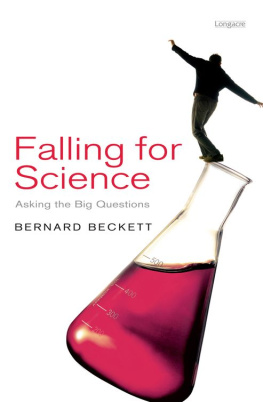
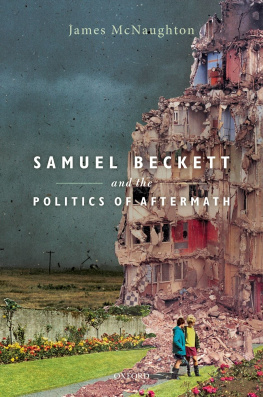
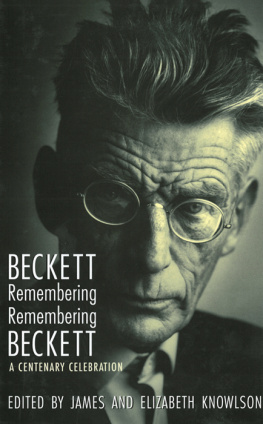
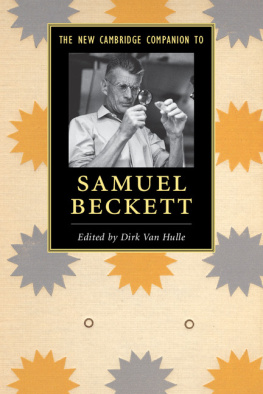
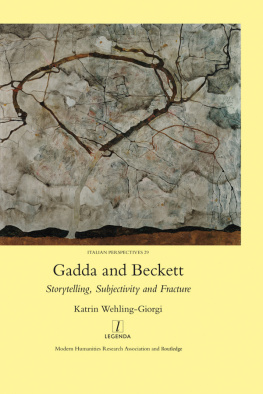

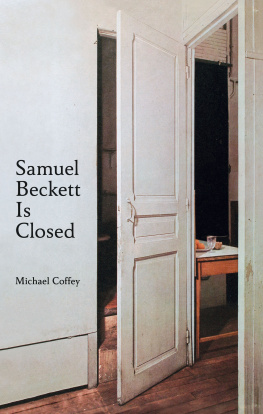
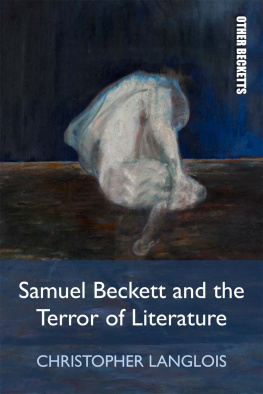
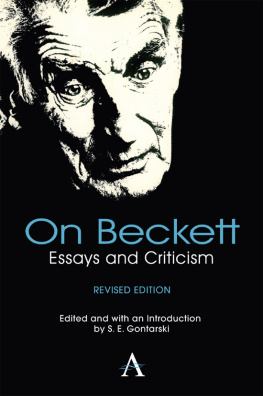
![Samuel Beckett [Samuel Beckett] - The Complete Dramatic Works](/uploads/posts/book/72751/thumbs/samuel-beckett-samuel-beckett-the-complete.jpg)
